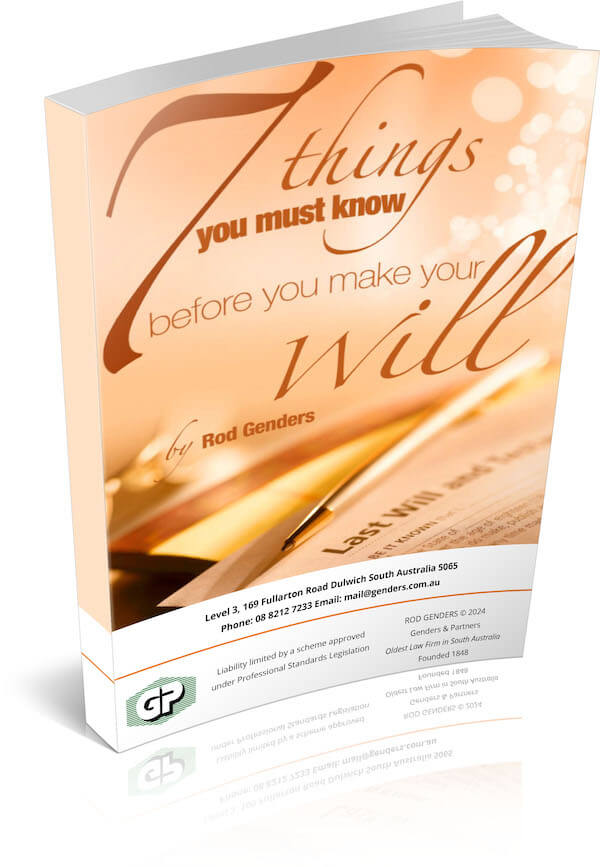Well, much later in life, older parents need to talk to their adult children about Wills and powers-of-attorney, elder care and end-of-life decisions.
In my practice as a lawyer specialising in estate planning, I have repeatedly noticed that my older clients are generally much more willing to discuss estate planning issues than their adult children.
I have speculated as to the reasons for this, and have come up with a list of possible explanations:
- Fear of being seen as interfering in their parents’ affairs;
- Concern at how their interest in their parents’ estates may be interpreted by others;
- Discomfort at confronting the mortality of their parents;
- A recognition that parents are getting older, and perhaps their best health is behind them;
- A perception of “passing the baton” from one generation to the next.
The children tend to underestimate the importance the parents put on providing for them and their children. Older parents are more likely to have estate planning documents like Wills, Advance Directives and Powers of Attorney than their adult children believed.
I encourage parents and children to discuss estate planning by focusing upon shared values and the things they agree on. It is generally easier for the older parents to be the ones to start the conversation since they are more comfortable talking about these issues.
I know several clients who have been putting-off some challenging conversations with their family members. One was an 80 year old lady whose son had returned home to live with her following his divorce. It was understood that he would have to move out when she died, but neither of them had considered the probability that she would have to sell her home in just a few years in order to afford the residential care accommodation she will need.
I urge everyone to make the time for meaningful conversations about life-changing issues like retirement accommodation and elder care. We are all expecting to live longer and longer nowadays, and we need to be much better prepared for our care & accommodation needs towards the end of life.
Other challenging conversations might involve creation of estate planning documents such as a medical power of attorney which assigns another person to make medical decisions about your care when you are no longer able to do so.
When a medical condition arises, a patient may fear they will lose control of their own medical care. But as long as an adult individual has the capacity to make medical decisions on their own behalf, they remain in charge.
Powers of Attorney and Advance Directives can help to make your wishes known, but they need to be supplemented by meaningful conversations to give them context. The least effective directive is the one that was never created. The most effective directive is one that all stakeholders understand, because it has been discussed ahead of time, and everyone knows the part they are to play.
Rod Genders is a senior Australian lawyer specialising in accident compensation and estate planning in Adelaide. His boutique specialist law firm is one of the oldest and most respected in Australia – visit it at www.genders.com.au . Rod is also a prolific author and speaker. Some of his articles and books on Wills, Probate, Trusts, Estate Planning, Asset Protection and Retirement Planning may be found at www.genders.com.au/adelaide-lawyer-blog
SPECIAL REPORT “7 Things You Must Know Before You Make Your Will”
In this report you will Learn:

Why home-made Wills can be a LOT more expensive than you might think.
The secret weapons used by the rich & powerful to protect their assets, and transfer their wealth two or three generations ahead.
How Estate and Trustee Companies make BIG money from “free” Wills.
The Most Common Estate Planning Mistakes, how they can cost your family a fortune, and How to Avoid Them.
The Elements of a Sound Estate Plan – why a Will alone is not enough.
How to Make Sure Your Assets Stay in Your Family and are not lost to creditors, lawsuits or ex-spouses.
How to guard against challenges to your Estate after you’re gone.








